
Energy news to 28/09/22. OPEC daily basket price stood at $89.81/bl, 27 Sept. 2022
Brent for November settlement sank $2.09 to settle at $84.06 a barrel in New York
WTI for November delivery dropped $2.03 to $76.71 a barrel
The global LNG market has more than doubled in size since 2011, ushering in dozens of new entrants and the expansion of smaller players in Asia. In recent years, smaller traders accounted for 20% of LNG imports in China alone. But a spike in spot LNG cargo prices to $175-$200 million, from around $15-$20 million two years ago, has had a seismic impact on physical trading activity for many smaller players. The capital needed to trade the market soared after benchmark LNG prices rose from record lows below $2 per million British thermal units (mmBtu) in 2020 to highs of $57 in August. Read More
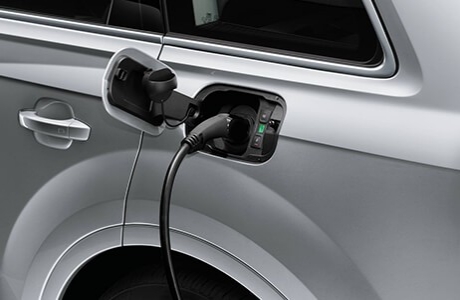
E-Rating has been created by the expert team at Electrifying.com. It uses a formula to give a one-off rating similar to EPC ratings for houses and energy ratings for electronics and white goods. For electric cars, the algorithm takes into account how well electrical power is converted into miles on the road, the speed at which the battery can be recharged and features such as heat pumps, intelligent brake energy recuperation and climate control preconditioning that all help to improve efficiency to tell drivers which are the most efficient models on sale.
So far, 50 electric cars sold in Britain have been given E-Ratings, with just two sitting in the highest A++ band: the £53,480 BMW i4 and Tesla’s £57,490 Model 3 Long Range.
While both are among the priciest electric family cars on the market, Electrifying.com says owners can save as much as £675 a year in domestic charging costs if they drive one instead of the lowest ‘E’-ranked EV. For those who do not have off-street parking at home and rely on the public network of rapid chargers, annual savings on charging costs could amount to as much as £1,300, it said. Read More

Volvo’s all-electric replacement for the current XC90 will be badged EX90, the Swedish brand has confirmed. The newcomer, which will share its underpinnings and tech with the new Polestar 3, will be unveiled officially next month. Although Volvo has yet to reveal any official details relating to battery size, range and performance, it has confirmed that the EX90 will be fitted with a state-of-the-art lidar system that could make it one of the safest vehicles on the road. Sales expected to start in 2023 with prices likely to start at around £65,000. Read More–>
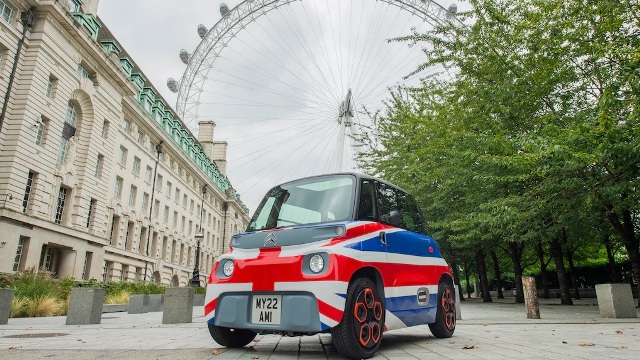
Citroën is offering the first 2,000 UK Ami buyers three months free charging across ubitricity’s network of more than 5,400 kerbside charge points.
Daniel Kunkel, CEO of ubitricity, said: “The visions of Citroën’s Ami and ubitricity’s lamp post charge points align neatly – they are minimalistic, space-saving and simple, with a low footprint, mindful of resources and affordable for everyone. In many of Europe’s cities, space is at a premium and for EV drivers without private parking, ubitricity’s lamp post charging solution offers convenient and affordable access to on-street charging right at their doorstep.” Read More
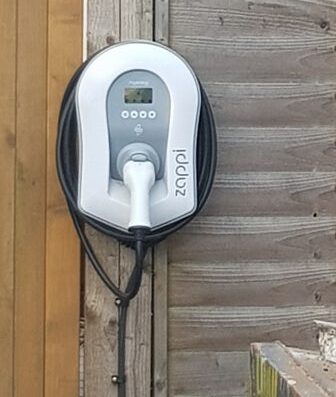
The rising cost of charging explained and what it means for you
To ‘fill’ a 58kWh Volkswagen ID.3 on a cheap rate (7.5p Octopus Go) tariff, it will cost £4.35. To fully charge at a DC rapid charge point, the average cost is £32.48. At the most expensive ultra rapid charger in the UK this will now cost £58 – that should take you 210 miles. £58’s worth of petrol in a Golf would take you 374 miles.
The break-even point – where it’s actually cheaper to fill up with petrol – is when electricity costs go above 71p/kWh, which has already happened at some public charge points. If you’re using a Tesla or an Osprey charger to charge your car you now fall into this bracket.Overall the average cost of charging your electric car on the public network is now 56p. If you plug in your electric car at home and you’re on a standard variable tariff, then from 1 October you’ll be paying 34p/kWh for electricity. That’s up 21% from the current 28p/kWh capped rate. Read More
The research company Ipsos has, on behalf of Volvo Trucks, interviewed 100 large e-commerce and manufacturing companies in eight European countries about their demand for fossil fuel free transports in future procurements.
The vast majority of these companies have set targets to reduce their climate footprint. 78% of those interviewed say that they are willing to pay more for a transport supplier with little or no CO2 emissions and 85% are prepared to change transport suppliers if they don´t meet their requirements.
The research also shows a clear connection between their future business opportunities and fossil fuel free transport options. 60% of companies believe they risk losing customers within the next three years if they can’t meet their consumer’s demand for deliveries with little or zero CO2 emissions. Read More–>
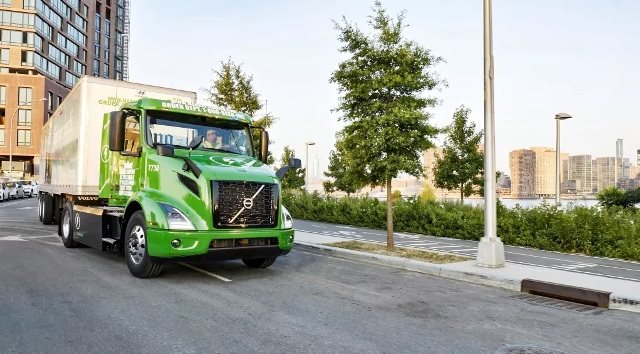
Volvo Trucks are running tests of fuel cell electric trucks that only emit water vapour and have an operational range comparable to diesel trucks, up to 1,000 km. A second pilot phase is to follow in a few years’ time and will see customer tests on public roads.The testing of fuel cell electric trucks in commercial traffic will start in 2025 with selected customers in Northern Europe, followed by additional trucks in more countries over the coming years.
Hydrogen-powered fuel cell electric trucks will be especially suitable for long distance and heavy, energy-demanding assignments. They could also be an option in countries where battery charging possibilities are limited.The fuel cells will be supplied by cellcentric – the joint venture between the Volvo Group and Daimler Truck AG. Cellcentric will build one of Europe’s largest series production facilities for fuel-cells, especially developed for heavy vehicles. Read More

Third Quarter 2022 Energy Prices & Taxes database and Monthly Oil Price Statistics.
The IEA Energy Prices and Taxes contains a major international compilation of energy prices for OECD countries. The database includes:
Annual and quarterly end user industry and consumer prices;
Annual, quarterly and monthly crude oil spot prices;
Monthly prices and taxes for selected countries;
Oil products spot prices and import costs by crude stream.
End-use prices cover the main oil products, gas, coal and electricity for the following sectors: Households, Industry and Electric Generation. Data are updated in the following months: December, March, June and September. Read More
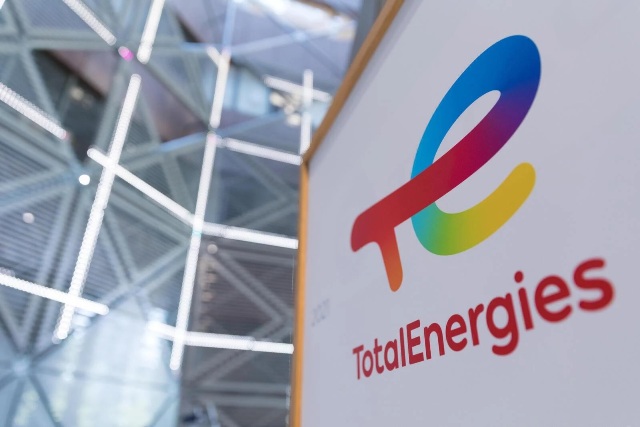
In view of the forthcoming COP27, TotalEnergies aims at improving the understanding of the global energy system and thus contributing to the Energy Transition debate with its annual publication, the TotalEnergies Energy Outlook 2022 TotalEnergies Energy Outlook 2022 reexamines the two core scenarios – Momentum and Rupture – elaborated by TotalEnergies to achieve the energy transition by 2050, taking into consideration current energy markets and societal trends. It also integrates new Net Zero pledges made since the presentation of last year’s Energy Outlook in September 2021, thus strengthening global climate ambition.
TotalEnergies’ Momentum scenario is a forward-looking approach based on existing decarbonization strategies of Net Zero 2050 countries, as well as NDCs (Nationally Determined Contributions) of other countries. In addition to major economies like the US, European countries, Japan and South Korea, Momentum incorporates this year new Net Zero 2050 pledges from Australia, Singapore, Taiwan and the UAE. The increasing number of countries with carbon neutrality commitments by 2050 following the COP26 in Glasgow is excellent news for the climate but still results in a 2.1-2.3° temperature increase by 2100 in our models (using IPCC curves AR6 P66). Read More

The Cambridge Centre for Alternative Finance (CCAF), a research centre at Cambridge Judge Business School, announced a new update to its Cambridge Bitcoin Electricity Consumption Index (CBECI) that provides estimates on the greenhouse gas emissions related to Bitcoin.
The CBECI was launched in July 2019 at the CCAF. A Mining Map was added to the Index in May 2020 to show the geographical distribution of the hashrate (the computational power provided to the network) – which showed that electricity consumption from Bitcoin was greater than that of some entire nations.
The new tool now adds an estimate of Bitcoin’s environmental footprint – providing daily estimates of the annualised and total greenhouse gas emissions related to Bitcoin.
“Environmentalists, financial institutions and policymakers are growing increasingly concerned about Bitcoin’s electricity consumption and its associated environmental repercussions,” says a blogpost outlining the new tool written by Alexander Neumueller, Digital Assets CBECI Project Lead at CCAF. Read More
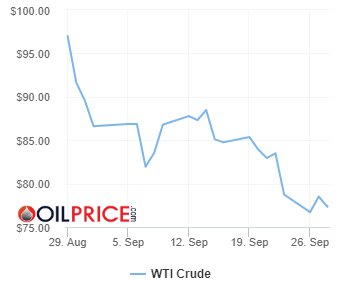
| Oil and Gas Blends | Units | Oil Price $ | change |
| Crude Oil (WTI) | USD/bbl | $77.40 | Down |
| Crude Oil (Brent) | USD/bbl | $85.14 | Down |
| Bonny Light | USD/bbl | $86.82 | Up |
| Saharan Blend | USD/bbl | $87.54 | Up |
| Natural Gas | USD/MMBtu | $6.69 | Down |
| OPEC basket 27/09/22 | USD/bbl | $89.81 | Up |
PowerCo, the new battery company of the Volkswagen Group, and Umicore, the Belgian circular materials technology group, announced the founding of a joint venture for precursor and cathode material production in Europe. From 2025 onwards, the joint venture will supply PowerCo’s European battery cell factories with key materials. By the end of the decade, the partners aim to produce cathode material and their precursors for 160 GWh cell capacity per year, which compares to an annual production capacity capable of powering about 2.2 million full electric vehicles. Cathode active materials are crucial for a successful powertrain transition towards e-mobility as they are the key technological lever for battery performance, as well as the biggest single contributor to overall battery cost.
The long-term partnership centers on the production of precursor and cathode materials in Europe, which are strategically important input materials central to battery value creation. Unter the terms of additional agreements, Umicore and PowerCo will collaborate on the sustainable and responsible sourcing of raw materials, an area in which Umicore is an industry leader. In this context, Umicore will be also providing refining services to PowerCo. At a later stage, based on Umicore’s technology and know-how, both partners aim to include elements of refining and battery recycling into the scope of the JV. Read More
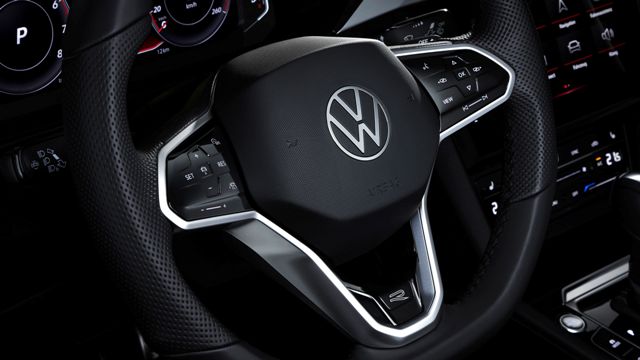
Elli, the Volkswagen subsidiary that manages all activities related to charging and energy for the Group in Europe, the Elia Group and its start-up re.alto signed a memorandum of understanding (MoU) in Berlin. The MoU underscores the signatories’ shared vision of integrating electric cars into the electricity system. Over the next few years, the partners will identify possible barriers to EV integration and explore how to showcase its benefits, for example by developing demonstrators.
The signatories Elli, Elia and re.alto encourage that the increasing amount of e-vehicles can create tremendous opportunities to counteract climate change in the coming decade: The batteries of electric vehicles can help stabilise grids as the share of volatile, renewable energies rises. Consumers will be able to charge their EVs when there are high amounts of affordable renewable energy in the system and inject the electricity stored in their EVs back into the grid when it needs it most. This would enable consumers to play an active part in the energy transition. Read More–>

| Region | Period | Rig Count | Change |
| U.S.A | 23rd September 2022 | 764 | +1 |
| Canada | 23rd September 2022 | 215 | +4 |
| International | August 2022 | 860 | +27 |
OilandGasPress Energy Newsbites and Analysis Roundup |Compiled by: OGP Staff, Segun Cole @oilandgaspress.
Disclaimer: News articles reported on OilAndGasPress are a reflection of what is published in the media. OilAndGasPress is not in a position to verify the accuracy of daily news articles. The materials provided are for informational and educational purposes only and are not intended to provide tax, legal, or investment advice.
Information posted is accurate at the time of posting, but may be superseded by subsequent press releases
Please email us your industry related news for publication info@OilAndGasPress.com
Follow us: @OilAndGasPress on Twitter |



